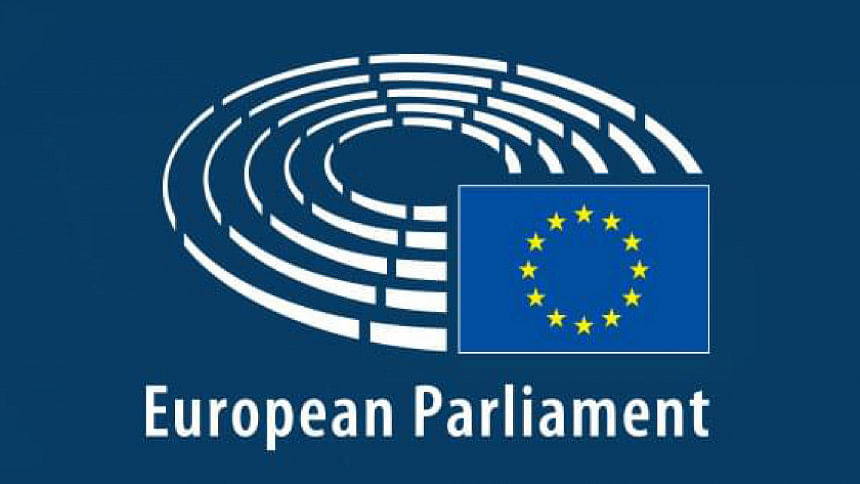Dhaka had better address Europe’s concerns

The European Parliament resolution on rights issues in Bangladesh adopted last Thursday is a warning for Dhaka before the EU takes actions that will hurt Bangladesh, said economists and international relations analysts.
They said Europe's concerns over human rights, democracy and civic rights are not new, but they now align with the US's.
Analysts said instead of ignoring and confronting them, Bangladesh should strengthen its engagement with the EU and address the genuine concerns that the EU has.
"I think the European Parliament resolution has heightened the level of risks. If they are not happy with the upcoming elections, they may consider suspending the GSP [Generalised Scheme of Preferences] facility," said Prof Selim Raihan of the Economics Department at Dhaka University and executive director of the South Asian Network on Economic Modelling (SANEM).
The resolution adopted on September 14 expressed concern at the "deteriorating human rights situation" in Bangladesh and called on the government to restore a safe and enabling environment for NGOs, human rights defenders, activists, and religious minorities.
It deplored the sentencing of Odhikar leaders Adilur Rahman Khan and ASM Nasiruddin Elan. It urged that the ruling be immediately and unconditionally quashed and registration of the rights body be reinstated.
It also asked the government to "guarantee the conditions for free, fair and participatory elections in 2024".
Most notably, the resolution said that the "Everything But Arms (EBA) enhanced engagement process remains ongoing with Bangladesh owing to its serious violations of international conventions" and that the EU "is concerned that the Odhikar case is a regrettable step back, bearing consequences as to whether EBA preferences [should] continue to apply to Bangladesh".
Under the EBA, Bangladesh has been accessing duty-free facilities for its exports to the 27-member bloc for the last two decades. In 2022-23, Bangladesh's export to the EU was $25 billion out of the total $55.55 billion.
The GSP facility was scheduled to expire when Bangladesh graduates from LDC. However, the EU extended the GSP period until 2029, which would help smooth graduation, especially against the backdrop of the pandemic and the Ukraine-Russia war that slowed the global economy.
Analysts say the European Parliament's resolution is "qualitatively different", especially as it talks about EBA. It is a "credible threat", they said.
Analysts say that the European Parliament's resolution is "qualitatively different", especially as it talks about EBA. It is a "credible threat".
Prof Raihan said the US, whose close ally is the EU, has taken action to ensure free and fair elections in Bangladesh. After the sanctions against Rab in 2021, Washington announced the new visa policy in May this year, saying that it would deny visas to those involved in election rigging and intimidation. There appears to be an alignment between the US and the EU.
"So, the perception that the EU does not mix up business with politics may not be right this time. Bangladesh should not ignore the credible threat," he said.
He said if not immediately, the EU may consider GSP suspension after the elections if it thinks that the rights situation has not improved.
In that case, Bangladesh's exports will face competitiveness from other countries, including India and China.
"Once the GSP is suspended, it will take years to reinstate," he said.
The US suspended the GSP facility in 2013 after the Rana Plaza disaster and is yet to reinstate it, he reminded.
Obaidul Haque, an associate professor who teaches European Affairs at the Department of International Relations of Dhaka University, said Bangladesh had continuously ignored the warnings from Washington on human rights issues. That ultimately led to the sanctions on Rab.
"There might be consequences if the government ignores the European Parliament's warnings too," he said.
At a time when global polarisation is happening fast, the whole world will be looking at Bangladesh's next elections, he said.
The US and the EU are diversifying their engagements and businesses. They are eager to come up with support for infrastructure development as part of their Indo-Pacific policies.
Obaidul said they don't want an ally that lacks democratic and human rights values. Bangladesh needs to engage with the EU, instead of getting confrontational, and make the required corrections.
The experts believe that the rights lobbyists perceive that there is a lack of democratic values and the judiciary lacks credibility. The government needs to work on this to clarify and correct where necessary.

 For all latest news, follow The Daily Star's Google News channel.
For all latest news, follow The Daily Star's Google News channel. 



Comments